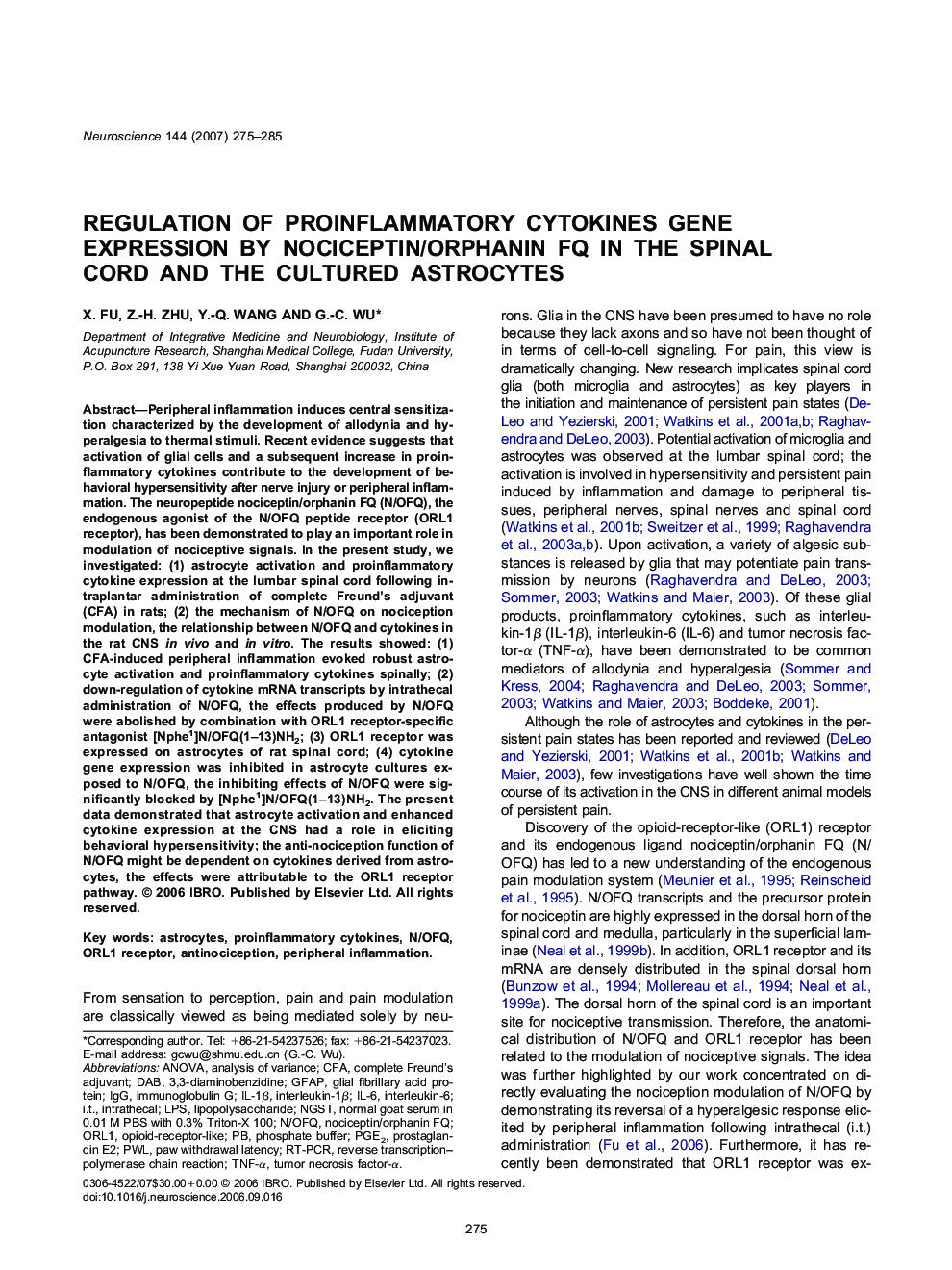| Article ID | Journal | Published Year | Pages | File Type |
|---|---|---|---|---|
| 4342359 | Neuroscience | 2007 | 11 Pages |
Peripheral inflammation induces central sensitization characterized by the development of allodynia and hyperalgesia to thermal stimuli. Recent evidence suggests that activation of glial cells and a subsequent increase in proinflammatory cytokines contribute to the development of behavioral hypersensitivity after nerve injury or peripheral inflammation. The neuropeptide nociceptin/orphanin FQ (N/OFQ), the endogenous agonist of the N/OFQ peptide receptor (ORL1 receptor), has been demonstrated to play an important role in modulation of nociceptive signals. In the present study, we investigated: (1) astrocyte activation and proinflammatory cytokine expression at the lumbar spinal cord following intraplantar administration of complete Freund’s adjuvant (CFA) in rats; (2) the mechanism of N/OFQ on nociception modulation, the relationship between N/OFQ and cytokines in the rat CNS in vivo and in vitro. The results showed: (1) CFA-induced peripheral inflammation evoked robust astrocyte activation and proinflammatory cytokines spinally; (2) down-regulation of cytokine mRNA transcripts by intrathecal administration of N/OFQ, the effects produced by N/OFQ were abolished by combination with ORL1 receptor-specific antagonist [Nphe1]N/OFQ(1–13)NH2; (3) ORL1 receptor was expressed on astrocytes of rat spinal cord; (4) cytokine gene expression was inhibited in astrocyte cultures exposed to N/OFQ, the inhibiting effects of N/OFQ were significantly blocked by [Nphe1]N/OFQ(1–13)NH2. The present data demonstrated that astrocyte activation and enhanced cytokine expression at the CNS had a role in eliciting behavioral hypersensitivity; the anti-nociception function of N/OFQ might be dependent on cytokines derived from astrocytes, the effects were attributable to the ORL1 receptor pathway.
